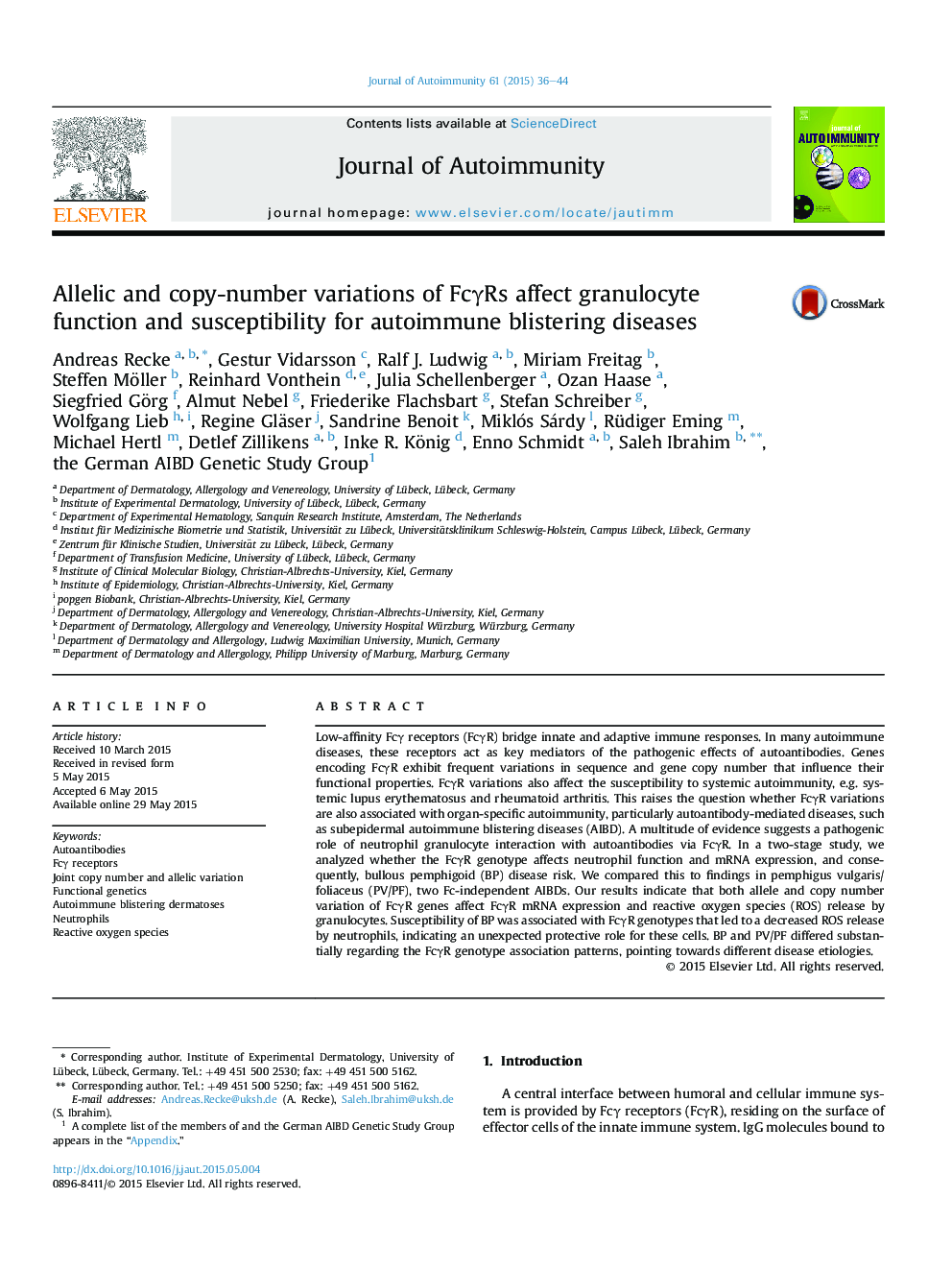| Article ID | Journal | Published Year | Pages | File Type |
|---|---|---|---|---|
| 3367710 | Journal of Autoimmunity | 2015 | 9 Pages |
•We analyze the complex patterns of copy-number and allelic variation of FcγR genes.•We use a hybrid approach to study the genetics of FcγRs in health and disease.•We investigate the impact on neutrophil responses to immune complexes.•FcγR variations that increase ROS release reduce the risk for bullous pemphigoid.•FcγR variations involved in peripheral tolerance also affect pemphigus risk.
Low-affinity Fcγ receptors (FcγR) bridge innate and adaptive immune responses. In many autoimmune diseases, these receptors act as key mediators of the pathogenic effects of autoantibodies. Genes encoding FcγR exhibit frequent variations in sequence and gene copy number that influence their functional properties. FcγR variations also affect the susceptibility to systemic autoimmunity, e.g. systemic lupus erythematosus and rheumatoid arthritis. This raises the question whether FcγR variations are also associated with organ-specific autoimmunity, particularly autoantibody-mediated diseases, such as subepidermal autoimmune blistering diseases (AIBD). A multitude of evidence suggests a pathogenic role of neutrophil granulocyte interaction with autoantibodies via FcγR. In a two-stage study, we analyzed whether the FcγR genotype affects neutrophil function and mRNA expression, and consequently, bullous pemphigoid (BP) disease risk. We compared this to findings in pemphigus vulgaris/foliaceus (PV/PF), two Fc-independent AIBDs. Our results indicate that both allele and copy number variation of FcγR genes affect FcγR mRNA expression and reactive oxygen species (ROS) release by granulocytes. Susceptibility of BP was associated with FcγR genotypes that led to a decreased ROS release by neutrophils, indicating an unexpected protective role for these cells. BP and PV/PF differed substantially regarding the FcγR genotype association patterns, pointing towards different disease etiologies.
